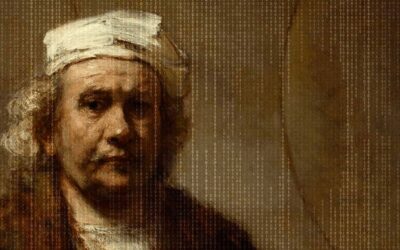Museum Digital Project Consultant: Create the Project Framework

Rachael Cristine Woody
Referencing last week’s post, museum digital projects are projects that contain at least one digital element. Digital elements can be digitization, working with digital files, cataloging in a CMS, and publishing digital content online.
The purpose for these projects can be a mixture of preservation and access, and even if there are some non-digital tasks to the project, the overall project is considered a digital project. The composition of museum digital projects can vary greatly. With this variability in mind, this series (the Museum Digital Project Consultant series) will highlight several digital project types where working with a museum consultant can be beneficial. Each post in this series will describe the project type and activities involved, and will outline how a consultant can help support the museum staff. This series will review the following project types:
- Assessing digital collections and making recommendations;
- Creating a digital project framework;
- Providing project management for a museum digital project;
- Selecting and implementing a museum Collections Management System (CMS); and
- Delivering digital collections training to museum staff.
This post will outline where a consultant can help regarding project framework creation.
When to Consider a Consultant
Consultants are experts in specific areas of museum work. This means that in addition to possessing knowledge and experience in specific areas of work, they also have a wealth of experience working with different sizes and types of museums. Your museum should consider working with a consultant if any of the following are true:
- The expertise needed isn’t presently available on staff.
- The staff don’t have enough time (capacity) to take on the specific activity or project.
- The project has never been done before.
- The project is highly specialized or contains areas of work that are highly specialized and need outside expertise.
Digital Project Consultant Service: Creating a Digital Project Framework
Every digital project needs a solid digital project framework. Components of a framework include:
- A clearly defined end goal;
- Milestones to hit on the way to end goal;
- A timeline that tracks activities and tasks that all add up to the achievement of the end goal;
- A plan from how to get from start to finish;
- Identification of roles and personnel assigned to roles;
- An outline of challenges and opportunities; and
- A list of resources needed (people, knowledge, time, money, and tools)
Examples of Where a Consultant Can be Helpful
While some tasks and goals may seem obvious, digital projects are complex and the museum has a better chance of success if they’re able to structure the digital project appropriately. A consultant who is familiar with museum digital projects and possesses a foundation in project management can assist museums who aren’t use to breaking down projects to fit into a digital project framework. For many, this can be an overwhelming concept because a project framework can seemingly be created from nothing—a blank piece of paper. However, consultants have created and worked through dozens of museum digital projects and they’re familiar with the framework, strategies, timelines, needs, and outcomes. Once a project framework is in place, museum staff can use it as a roadmap to lead them through the project from start to finish.
Conclusion
A digital project framework is a blueprint for how to achieve a successful project outcome. This helps save time and money by avoiding costly mistakes, and it helps the museum identify and plan for the resources needed to support the project. With a smart project framework, a museum can prove (via the framework) that they know exactly how to execute the project to achieve their stated goals. This demonstration lends persuasive support to fundraising requests within an organization, with a donor, or with a grant application.

Rachael Cristine Woody
Never miss another post. Subscribe today!
Similar Posts
No-Code Digital Storytelling Example: Rembrandt’s Self-Portrait at Kenwood House
Explore how English Heritage’s Kenwood House uses the no-code platform Shorthand to bring Rembrandt’s Self-Portrait with Two Circles to life through visual storytelling and interactive design.
Exploring No-Code Digital Storytelling: Hoover’s “Fanning the Flames” Exhibit
Explore no-code digital storytelling with Hoover’s ‘Fanning the Flames’ exhibit. See how interactive tools (Deep Zoom Color Compare & Hot Spot) enhance user engagement and the visual experience.
An Introduction to Scrollytelling for Museums
Discover how museums use scrollytelling and digital storytelling platforms to create immersive narratives. This introduction explores key concepts and approaches to interactive storytelling.
Exploring Self-Determinate Multiple Pathways: An Example of Digital Storytelling
Discover how self-determinate multiple pathways offer flexible interactive storytelling in museum exhibits. Learn from the Tenement Museum’s ‘Your Story Our Story.’






Leave a Comment
Comments are reviewed and must adhere to our comments policy.
0 Comments